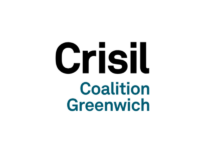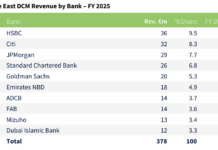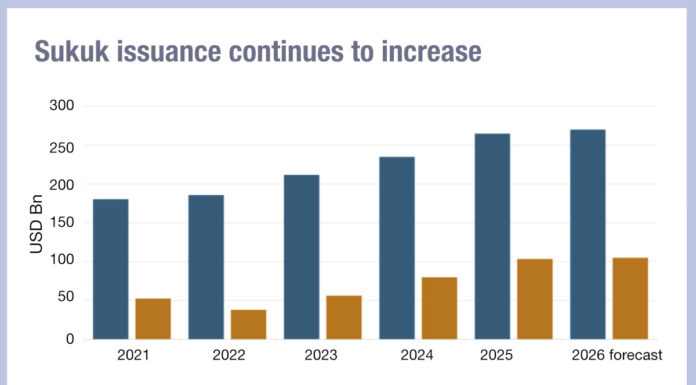Infrastructure funding needs and external debt service obligations in Africa are growing, and the traditional method of using Eurobonds for financing is no longer cutting it, according to a recent Coalition Greenwich report. Investment banks are poised to profit.
Annual infrastructure funding needs are expected to hit between US$130 and 170 billion across Africa. The current investment is around US$80 billion – leaving a US$50-90 billion financing gap.
Elsewhere, African nations are expected to pay US$88.7 billion in external debt service obligations this year.
While Eurobond markets have been the method of choice for African borrowers to meet their funding needs, alternative financing mechanisms – often in partnership with global and regional banks – are growing in popularity.
Banks will ultimately be the winners here, positioned to build out their presence across the continent and capitalise on growing demand, with Coalition Greenwich forseeing a US$1.4 billion fee and interest revenue pool for the sector by the end of the year. However, a report from Competitor Analytics team members Bhavya Ahuja, Aamir Hazaria and Callum Minns the firm warns that the economies of African nations could pay the price.
Alternative financing tends to come with higher interest rates. Total return swaps (TRS) are becoming a popular option for sovereign financing, with Angola taking a US$1 billion TRS loan from JP Morgan in May this year. TRS yields often exceed those of Eurobonds by 150-200 basis points (bps), the report stated.
According to Coalition Greenwich, TRS-based financing could become a US$3-5 billion annual market within the next three to four years. For banks, who can charge an above-average interest rate, projected growth could result in between US$80-100 million additional fee and carry revenues annually.
Syndicated loans and private credit facilities are also popular alternatives to Eurobonds.
African sovereign loans often price between 500 and 800 bps above the secured overnight financing rate (SOFR), the report says, making them an attractive offering for banks. With an estimated average of US$5-10 billion in syndicated sovereign loans made to Africa annually, banks’ profits in fees and interest spread could reach between US$120 and 220 million, Coalition Greenwich notes.
The report warns, “As African nations accumulate debt through alternative financing channels with higher interest rates and stricter terms, they may face challenges in meeting their debt service obligations, potentially triggering a vicious cycle of debt refinancing and further indebtedness.”
To prevent this, careful risk management and financing solutions specifically tailored to the needs of individual economies are essential, it affirms.
Other structured derivative transactions such as currency swaps and forward contracts, or other bespoke agreements, are also growing in popularity thanks to their higher margins. Coalition Greenwich observes that volumes are limited, but expects to see the use of both structured and synthetic financing grow over the coming years.
©Markets Media Europe 2025












